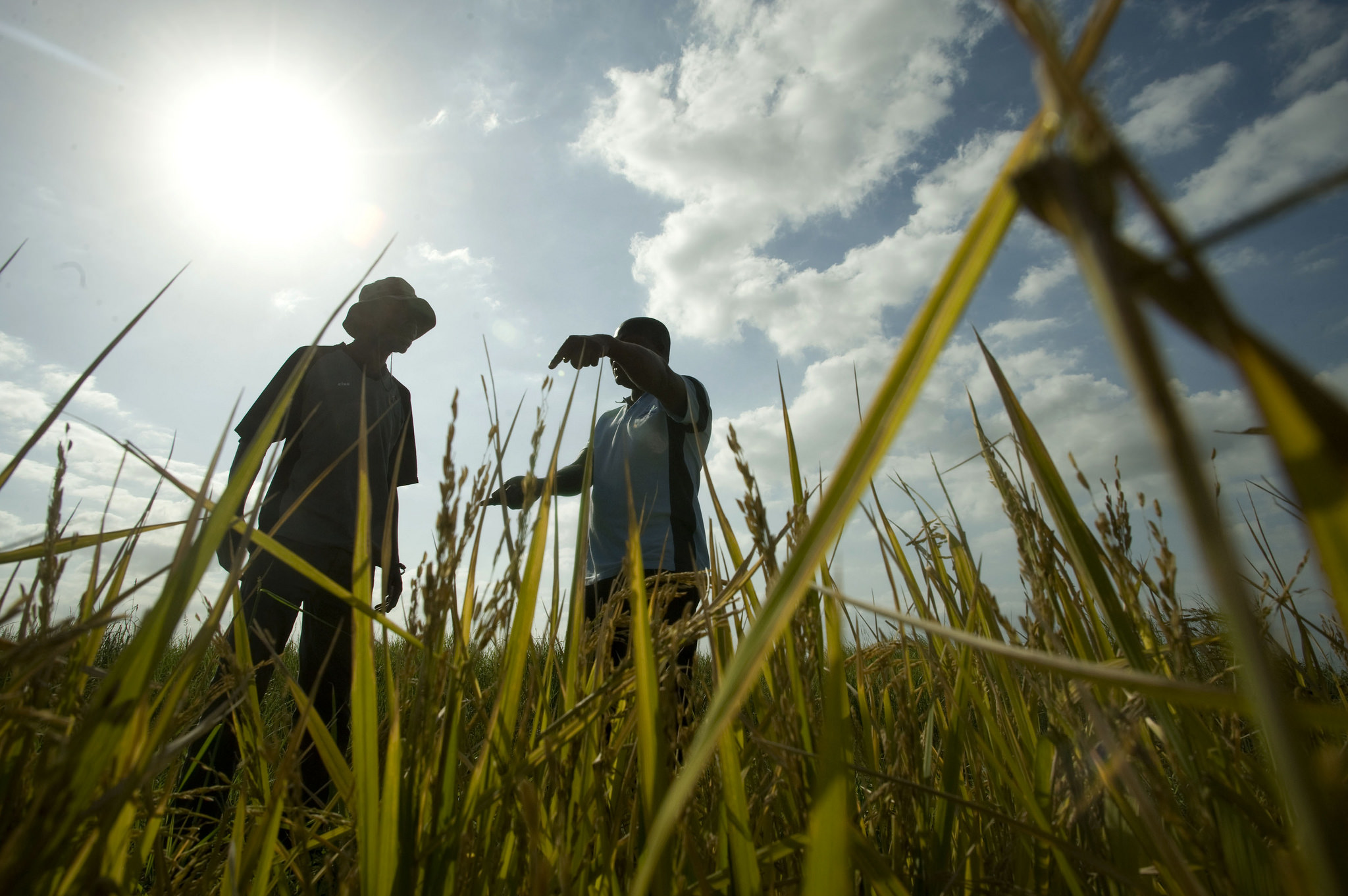This week, at a meeting of the African Union, heads of state have an opportunity to make progress in the fight against corruption. Corruption cheats the continent’s people and governments out of approximately $50bn each year, money that could be spent on realising the African Union’s Agenda 2063 vision of an ‘integrated, prosperous and peaceful Africa’. The agricultural sector is a key part of this puzzle and of the solution.
Corruption hinders the ability of a country to transform socially and economically, be governed democratically, and reduces the chances that its people will live in peace. Along with inequality, it forms part of a vicious cycle; as corruption grows so does unequal distribution of power and therefore unequal distribution of wealth. The agricultural sector has long been identified as fundamental to transforming livelihoods and opportunities on the African continent and has the potential to do a lot to address this imbalance.
Currently 80 percent of farmers in sub-Saharan Africa are smallholders, typically with less than two hectares of land. Poverty is pervasive amongst them, with millions living below the poverty line. Farmers have little power to fight corrupt institutions. However, transparent management of the agricultural sector that empowers farmers could be one of the best tools the continent has to fight poverty at scale.
A healthy and prosperous agricultural sector could be the engine for economic growth on the continent. The World Bank projects that agriculture and agribusiness in Africa have the potential to make up a $1 trillion industry by 2030, but this will only happen if embezzlement, fraud and bribery are addressed. How can we do this?
Promote transparent systems
Transparency is a potent weapon in fighting corruption. The public sector should prioritise efforts to create and enforce legal frameworks that promote transparency and root out corruption. It is often said, ‘it starts at the top’ and, if so, it must also be fought at the top. Independent and well-functioning media, independent of special interests, is one way to achieve transparency, as well as actively disclosing ownership structures of companies to regulators.
Last year saw the end of President Mugabe’s 30-year reign in Zimbabwe which bought hope to the continent, and South Africa, Ghana and Sierra Leone were among countries reported to be taking a stronger stance against corruption. But, an Afrobarometer survey found that in 23 out of 36 countries the majority view was that corruption had increased. For the agricultural sector, a lack of transparency can have negative effects on land tenure, credit availability, quality of supplies, water allocation, and the development of agribusinesses.

Harness the power of new technologies
Over four decades, the Nigerian Government spent $5bn dollars on farm input subsidies but only 11 percent of farmers received fertiliser, resulting in low yields and low profits. Middle-men siphoned large amounts of money out of the system. In 2012, when the then Minister of Agriculture Dr. Akinwumi Adesina discovered this problem, he introduced an Electric Wallet through which he could send farmers digital vouchers directly to their mobile phones to buy fertilisers and seeds.
Within two years the Electronic Wallet had reached more than 14 million Nigerian farmers and spread to poor regions in the North. The scheme served as a catalyst for private sector confidence and investment. This approach to better support farmers has since been adopted in many countries including my own, Zambia. With the boom in mobile use across Africa there are more and more opportunities to limit the stages money travels through to reach beneficiaries.
Support farmers’ institutions to operate effectively and hold Government to account
Many African countries have sound agricultural policies. It is in the implementation of these where corruption seeps in. Farmers that are organised into unions or institutions, and are armed with information, are better able to hold governments to account for poor service provision.
In a previous position, as Zambian Country Director for ActionAid Denmark, I saw first-hand the benefit of strengthening leadership and technical capacity of farmers’ institutions. In the Eastern, Luapula and Lusaka provinces of Zambia we supported farmers to organise their collective voice and equipped them to track agriculture budgets and services at the local level so they could demand improvements and accountability. Today, these district farmers’ organisations remain formidable local institutions.
For anti-corruption campaigns to be credible they need to be led by legitimate and independent bodies answerable to legislative institutions and not simply to the President or Prime Minister. Too often they are publicly seen as delivering no real accountability for citizens.
The summit this week is an opportunity for African leaders to turn this trend on its head. The African Union has a responsibility to set continental norms and uphold shared values. It has powerful instruments to fight corruption including a Convention on Preventing and Combating Corruption, ratified by 38 countries. We eagerly anticipate the initiatives announced by this influential group, especially those that will improve the lives of Africa’s farmers.



